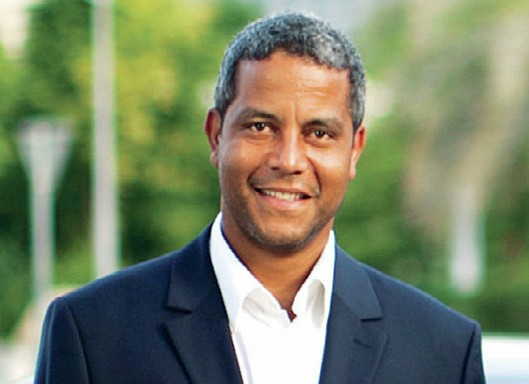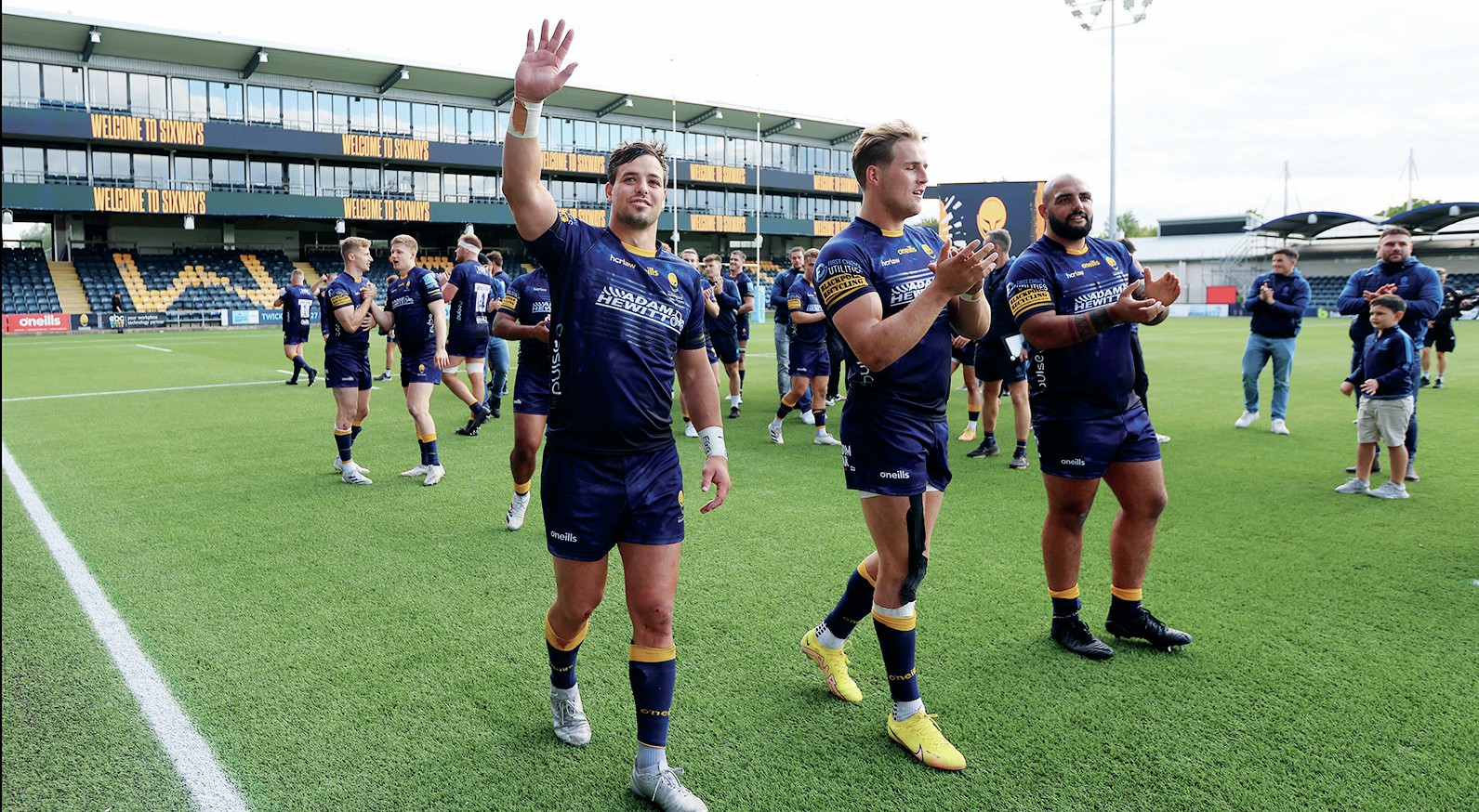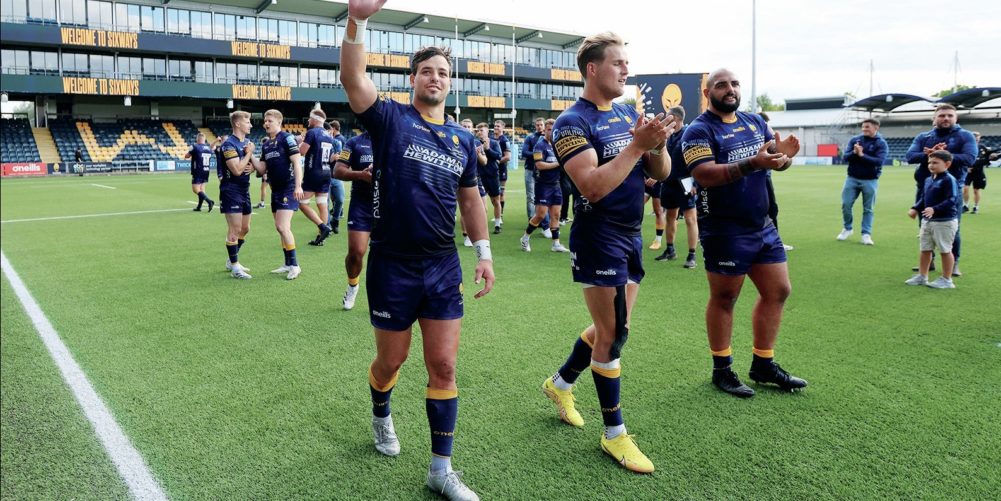OUTSPOKEN AND UNMISSABLE… EVERY WEEK

Worcester's situation is very sad for everyone involved in the club, and to most of us looking in from the outside.
When you think of the history of the club, and the driving forces involved like former owner Cecil Duckworth – and the wonderful words said about his support for Worcester – it drives the message home that rugby union in the West Midlands has lost a crucial community hub.
I always remember Ben Clarke going up to Sixways as a veteran after he left Bath and talking about what a great set-up and culture there was at Worcester, and how much he enjoyed being a part of it.
Much as they were usually part of the relegation fight, facing that sort of situation binds people together, and the club had a strong identity. We do not know all the background facts of the club going into administration yet, but there are rumours that there were X amount of companies with various parts of the Worcester operation – like the rugby club, the stadium, and the car park – and it has given rise to speculation that last owners came in a bit like corporate raiders.
No doubt they also came in with a fanfare to take Worcester to the top of the league, but if you don't have the finances to do that, then eventually it leads to distrust. It leaves so many unanswered questions, but now the club has gone into administration hopefully some of the unknowns will be answered.
We do know that ex-Worcester CEO Jim O'Toole says he has a rescue package ready to go which could save the club – but it is all pending the administration process. Is the package good enough, and strong enough, for Worcester to continue? Even if it is, it is likely that they will be relegated.
What has happened to Worcester raises big questions over the viability of the entire Premiership, especially as we know that Wasps have also applied to go into administration.
We have heard from Premiership chief executive Simon Massie-Taylor that the league's officials would like to see the books of every club, although you have to ask yourself why this was not in place at the outset. But we are where we are now – and we need to ask whether PRL can remain responsible for the league's administration.
It raises important questions over whether English rugby should look at a regional structure by amalgamating clubs in the way that the Welsh did. However, when you look at what is happening Wales, and the way they sacrificed big clubs which had big crowds for a struggling regional structure, it does not look like the right solution.
At the same time, the RFU has said that the numbers in the community game are falling off, and it has proposed regeneration ideas such as having touch rugby summer leagues, like they do in New Zealand. That is worth looking into. There is a lot of commercial savvy among the owners of leading English rugby clubs, but unbelievably, they do not seem to be able to make the sport financially viable. This is strange considering that they have all been involved in businesses which have been successful. When the franchise model in American sport sees wage clashes between players and owners, they usually happen when wage demands are not commercially sustainable. However, there is a system in place in most American pro sports, which stipulates that not more than just over 50 per cent of the turnover of a franchise can be spent on player salaries. The Premiership should learn from that.

Maybe it is time for the owners to wipe the slate clean, run not-forprofit organisations, and keep their costs down.
If what happens next is that two or three more Premiership clubs are unsustainable because of financial issues, it will be a big blow – but it also offers the chance for a reboot.
I love this game, but when you hear about almost all parts of it struggling, it makes you wonder whether it will survive the next 50 years. Then you think about how mini sections at clubs all across the country that are not just thriving, but booming, and it gives us something to build on.
It is the big step from mini rugby to teenagers playing for community clubs, and then progressing to the big stages of Kingsholm and Welford Road, where it is not working as well as it should. This is a watershed moment for the club game in England, and perhaps we will look back at 2022 as the catalyst for change. When the game went professional it was a dream come true for players because we were getting paid to play the game we loved.
However, the community game should never have gone professional, because it led to benefactors paying for players rather than building facilities – and when those owners leave the scene the club either sinks like a stone, or finds another benefactor. That is not a great system, and it has undermined the huge volunteer army at community rugby clubs that help them to thrive.
My gut feeling is that we need to go back to the rugby union culture we had in England before the game went open. In the amateur era, Bath had 10,000 people watching every match, and a lot of the money generated supported the community game in the area.
We must never lose sight that most of the players at pro clubs started in mini and junior teams at community rugby clubs.
There is a lot of thinking to be done, but there should be enough of a brains-trust in the English game to come up with a sustainable model. It starts with a business plan where you know your income and your player wage costs, and you go from there to develop the best league in the world.
It is about a mentality that says, ‘don't worry if you can't buy the biggest superstars – go out and create your own'.
English club rugby needs a financial correction because it is not sustainable. The French have shown how to invest in their own players, and their financial model works for them. England has got to create its own successful model.
The numbers are there in the mini rugby sections, and the name of the game is retention. This is the end of the first period of professional rugby in England, and now we have to rebuild and use it to kickstart the best league in the world. We have to make a bright future from a difficult situation.
By 2024-25, when the new PGA agreement kicks-in, there has to be a sustainable model in place in English club rugby which is not dependent on owners to finance the game.



























